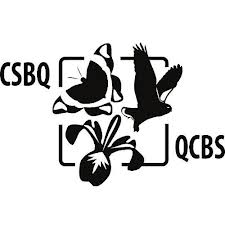Julia Goss

Université de Sherbrooke
M.Sc. candidate
Supervisor: Dany Garant
Patrick Bergeron
Bergeron, Patrick
Start: 2024-05-01
M.Sc. candidate
Supervisor: Dany Garant
Patrick Bergeron
Bergeron, Patrick
Start: 2024-05-01
Project
Maternal effects on behaviour and life-history traits of Eastern chipmunks (T. striatus)Social interaction can lead to phenotypic variation within a population, as one individual can influence the phenotype of another individual. We define this influence as being an indirect genetic effect. Based on the force of the effect, the selection of the affected traits, and the relatedness between individuals, the indirect effect could lead to phenotypic evolution. Maternal effects are one of the most well-known examples of indirect genetic effects. A maternal effect occurs when variation in a female trait, either genetic or environmental, produces a genetic variation in the next generation. Many rodent species can anticipate resource availability in future seasons when their reproduction follows a pulsed resource cycle. For example, a population of Eastern Chipmunks (Tamias striatus) in southern Quebec have shown higher reproductive rates in years where American Beech seed (Fagus grandifolia) production is high. Using data collected over almost 20 years from this population of eastern chipmunks, my research looks to determine the presence and the magnitude of maternal effects on the behaviour and life-history traits of young eastern chipmunks in a fluctuating environment.

